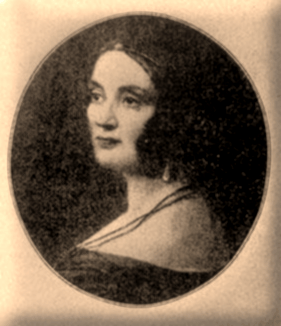| Revision as of 10:16, 3 November 2010 (edit) AKulsdom (Talk | contribs) (New page: <br>__NOEDITSECTION__ == Therese Albertine Luise von Jakob-Robinson (Talvj), German writer, translator and intercultural mediator, 1797-1870 == <br><br> ''By Juliana Jovi?i?, Universit...) ← Previous diff |
Revision as of 09:28, 4 November 2010 (edit) (undo) AKulsdom (Talk | contribs) Next diff → |
||
| Line 19: | Line 19: | ||
| <hr> | <hr> | ||
| <br> | <br> | ||
| - | *Portraits of Authors: Therese Albertine Luise von Jakob-Robinson ><br><br> | + | * [http://www.womenwriters.nl/index.php/Portraits Portraits of Authors]: Therese Albertine Luise von Jakob-Robinson ><br><br> |
Revision as of 09:28, 4 November 2010
Therese Albertine Luise von Jakob-Robinson (Talvj), German writer, translator and intercultural mediator, 1797-1870
By Juliana Jovi?i?, University of Novi Sad
Born in 1797 in Halle, Germany, she spent 44 years of her life abroad: 10 in Russia while she was a child, 34 in America as mature woman married to American protestant theologian and scholar Edward Robinson, opposed to only 29 years in Germany. She published around 49 reviews, criticisms, novels and scholarly works in well-known journals and under well-known publishers in both America in English and Germany in German language. Talvj was familiar with Slavic, German, Oriental and American resp. Anglo-Saxon culture and a great number of her works refer to these different cultures and nations. She was among the most famous Slavists in Europe and the first in America, where she founded the discipline of American Slavonic studies.
Talvj started her career with translating more than 200 Serbian folk poems under the title Serbian Folk Songs, a work first published in Halle in 1825|26 and afterwards republished in Halle/Leipzig (1836) and in Leipzig (1853). Talvj’s translations were normative for other translators: they used her German translations to translate the poems in their own languages. Furthermore she also introduced the Serbian folk poems into very important and influent German literary salons in Berlin, Halle, Leipzig and other major cities of this time. A great number of well known intellectuals and writers were involved in the genesis and distribution of these poems, such as Goethe, Jakob Grimm, Jernej Kopitar and Vuk Stefanovic Karadzic, which makes Talvj’s translation a product of an international collaboration and environment. Talvj had the skills and the transnational background to cope with this challenge and she used her proficiency to bring this international collaboration to a successful end. Even though Talvj as a woman was marginalized in many ways in her native and adopted country, her work is of huge value and needs to be recognized today.
AsK November 2010
- Portraits of Authors: Therese Albertine Luise von Jakob-Robinson >
